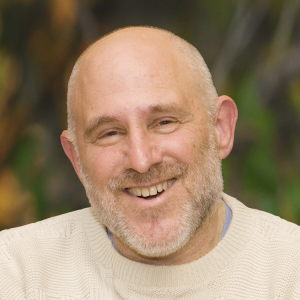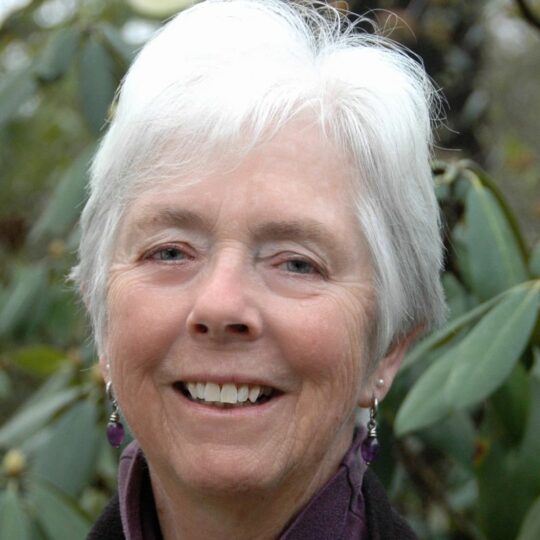Please note: This retreat is accepted as a part of the requirements of MBSR teacher trainings at both Brown University Mindfulness Center and UCSD (University of California San Diego) as well as for the MMTCP (Mindful Meditation Teacher Certification Program) by SoundsTrue.
This Online retreat is suitable for both beginning and experienced meditators. We will work primarily with the first of the Four Foundations of Mindfulness – mindfulness of the body. The “32 Parts of the Body” meditation has rarely been taught in the West; you will be introduced to it from an Insight perspective of the true nature and wonders of the body. This practice has also been used for healing illness and most importantly to help eradicate the erroneous view of self. Various methods will be taught to strengthen mindfulness of the body and to explore the mind/body connection.
We will follow the usual format of an Insight Meditation (Vipassana) retreat, with periods of sitting and walking meditation, as well as qigong sessions for further exploration of mindfulness of the body. Each day there will be a talk and systematic meditation instructions that are embedded in lovingkindness. These teachings and practices will emphasize quieting the mind, opening the heart, and developing clarity, wisdom, and compassion; and foster the depth of practice.
This retreat is appropriate for the general public, health professionals, and mindfulness teachers or in training.
Schedule (PT):
Saturday 6:00 pm – 8:00 pm
Sunday – Thursday 8:00 am – 8:00 pm
Friday 8:00 am – 12:30 pm
Sunday – Thursday Schedule
8:00 Qigong
9:00 Silent Sitting Meditation
9:45 Practice Group Meeting (if you are assigned) or Walking Meditation
10:30 Instructions and Q&A
11:30 Practice Group Meeting (if you are assigned) or Walking Meditation
12:15 Silent Sitting Meditation
1:00 Meal Break
3:00: Qigong
3:45 Silent Sitting Meditation (Instructions and Q&A will start on Day 3)
4:30 Practice Group Meeting (if you are assigned) or Walking Meditation
5:15 Dharma Talk
6:00 Meal Break
7:30 Silent Sitting Meditation
8:00 Rest or Continued Practice
For MMTCP Students: The MMTCP student attendance and practice participation (with camera on) requirement is at least 5 bolded sessions per day including at least 2 Silent Sitting Meditations per day and attendance of both of your One-Hour Practice Group Meetings (each retreatant will have two for the duration of the retreat).
_____________________________________________________________________________
Sitting (or stationary) Meditation: Sitting meditation is at the heart of silent retreats. In sitting practice silence and stillness develop, concentration deepens, and awareness expands. Through training the heart, kindness and compassion are awakened to meet all that arises within awareness. We come into presence and learn to find freedom in the midst of life as it truly is. The Buddha invited us to establish mindfulness in all postures. For those who find sitting is not possible for their body, alternate stationary postures are suggested.
Walking Meditation (or movement meditation): Throughout the retreat we learn to cultivate mindful awareness in all postures: sitting, walking, standing, and lying down. In mindful walking meditation practice, we learn to sustain meditative awareness through movement, and establish continuity of mindfulness in the midst of activity. Walking meditation helps us to bridge the gap between our experiences in seated meditation and daily life. We alternate between sitting and walking meditation to support the establishment of mindfulness and concentration and to balance the factors of energy and calm in our practice. The Buddha invited us to establish mindfulness in all postures. For those who find walking meditation is not possible, alternate forms of mindful movement are suggested.
Eating Meditation: Instructions will be given on how to integrate the process of nourishment and eating as a meditation during retreat for continuity of mindfulness and a deepening of practice. Retreatants are encouraged to bring the same calm, focused attention to eating as is brought to sitting, walking, and other activities. Through reflection on the Buddhist teaching of interdependence, we have the opportunity to slow
down and recognize each bite of food we eat is a result of countless causes and conditions and to appreciate the blessing of mindful nourishment.
Dharma Talks and guided meditations: Each day, the teachers present a different set of teachings that are central to practicing mindfulness and compassion. These teachings can be applied to our own direct experience. Sometimes the talks focus on retreat practice, and sometimes they offer teachings for wise living in the world.
Dana/Generosity: There will also be an opportunity to offer Dana for the teachers and center at the end of the retreat. Thank you for your support!
_____________________________________________________________________________
Continuing Education (CE) (Optional)
Health care professionals will be able to incorporate the tools and practices offered in this program when working with clients.
Based on the content of this workshop, health care professionals will be able to:
- Integrate the theory and practice of mindfulness meditation in ways useful to clients;
- Communicate to clients, and incorporate in a professional setting, the positive effects of deepening the quality of concentration in order to reduce stress and improve well-being;
- Use, and describe to clients, ways to identify and ease mental and physical compulsions by developing kind, open, and non-judging attention;
- Incorporate practices when working with clients to identify and establish a greater balance of compassion for oneself and others;
- Incorporate skills to work more effectively with stress, and be able to share these skills with clients;
- Utilize non-judgmental, moment to moment awareness of the relationship between the body and mind, in ways that may be shared with clients;
- Incorporate mindfulness meditation skills with clients to improve their sense of well-being and personal life control.
- Identify at leases 4 benefits of mindfulness meditation that are useful in health care;
- Describe the relationship between a health care professional’s mindfulness practice, and improved clinical outcome;
- Incorporate mindfulness of breath practices to develop presence moment awareness, and to calm the mind in preparation for, and when working with clients.
- Utilize a variety of qigong movements in preparation for clients or patients in ways that may reduce stress and improve patient care.
- Utilize a variety of qigong movements after working with clients or patients to cultivate qi in ways that may prevent burnout and emotional exhaustion.
- Utilize qigong techniques to strengthen the endocrine and immune systems, in ways that may reduce anxiety and tension.
Psychologists: Continuing Education Credit for this program is provided by UC San Diego Center for Mindfulness. The UC San Diego Center for Mindfulness is approved by theAmerican Psychological Association to sponsor continuing education for psychologists. The UC San Diego Center for Mindfulness maintains responsibility for this program and its content. This course offers 16 CE credit.
California licensed MFTs, LPCCs, LEPs, LCSWs: Continuing Education Credit for this program is provided by UC San Diego Center for Mindfulness. The UC San Diego Center for Mindfulness is approved by the American Psychological Association to sponsor continuing education for psychologists. 16 CE credit may be applied to your license renewal throughthe California Board of Behavioral Sciences. For those licensed outside California, please check with your local licensing board to determine if CE credit is accepted.
Nurses: UC San Diego Center for Mindfulness is approved by the California Board of Registered Nursing, Provider Number CEP16351, for 16 contact hours.
_____________________________________________________________________________
Testimonials from 2020 The Original Body Scan: 32 Parts of the Body Meditation Discovering Freedom within the Body:
This retreat of the 32 body parts, The Original Body Scan was an experience of wonder, joy and vulnerability. It has started me on the path toward more compassion for my body as well as other’s bodies. I left breathing lovingly to myself, “I see you”. Christina B.
I entered this retreat with no expectations or knowledge of what it would specifically include. I signed up intuiting I needed to develop a relationship with my body, but didn’t know where to start. I entered feeling somewhat skittish, anxious, insecure. I now realize that was my fear mind having its way with me. I now feel more at home in my body, fear of being in my body has been replaced with gratitude for my body’s internal workings, a releasing of unrealized holding, and ultimately freedom from my old narrow, pathological narrative. The qigong was a delightful and enriching surprise at how it solidified the body practices even deeper. My body, mind and spirit now feel in alignment with my deepest heart’s intentions. Additionally, the connection I felt with the group, virtually no less, was something unexpected and yet fulfilled a longing I didn’t know was there. Anna R.
A truly amazing experience. I highly recommend this retreat to anyone who feels at war with themselves, aggression towards self, or full of self loathing. These practices will challenge and delight you in so many unimaginable ways. And in the end you will have a deeper appreciation for your body and your planet. Xochitl M.








